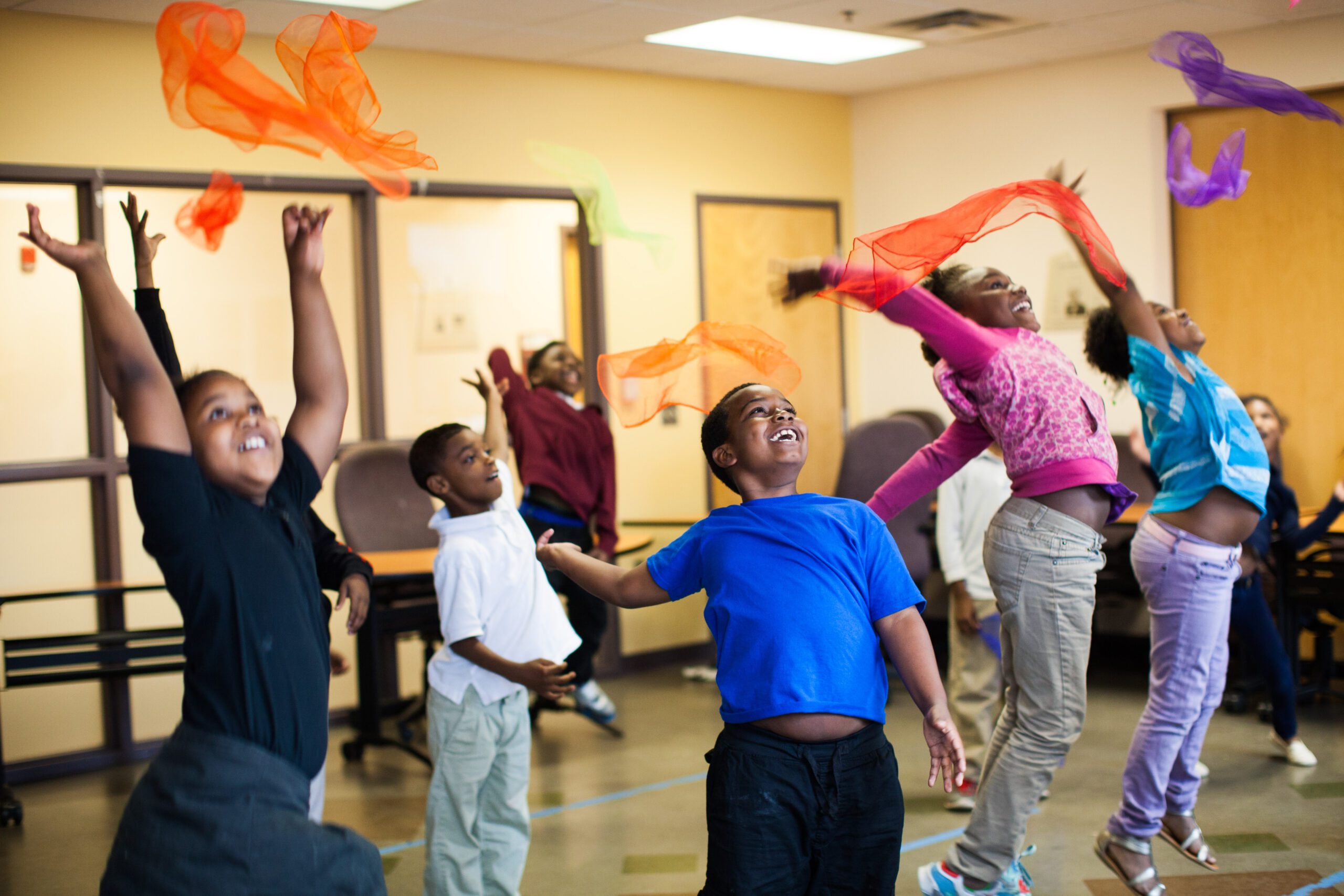NWS WINS AMERICAN PRIZE
September 12, 2019
TEACHER SPOTLIGHT, Chad Baker
October 1, 2019We are delighted to introduce Measurement Resource Company as a guest on our blog this week! MRC has been evaluating our community outreach programs for the last five years. When MRC approached us about featuring CCC on their blog, our only condition was that we got to share this story with you too. And after you read about this partnership, take a minute to visit MRC online to find out if your organization might also benefit from this type of evaluation.
Columbus Children’s Choir and Measurement Resources Company Celebrate Five Years of Conducting Program Evaluations for Community Outreach Initiatives
In 2014, nonprofit Columbus Children’s Choir (CCC) consolidated several of its community outreach initiatives under a single suite of offerings. Not only did the move make sense from a programmatic standpoint to unify these previously disparate initiatives, it also allowed the organization to go after larger pools of grant funding from state and government entities, such as the Ohio Arts Council, as well as foundations and corporate partners. And because these funding organizations are increasingly data-driven in their approaches to selecting which initiatives they fund, CCC selected Measurement Resources Company (MRC) to conduct program evaluation on an annual basis to provide funders both qualitative and quantitative insights into the social impact of its community outreach efforts over time.
“Not only were these outreach initiatives stronger together, the external evaluation component also added credibility and strength to the organization,” said Kerry Haberkern, managing director, CCC. “This data helps the organization to continue to improve the quality of our community outreach offerings.”
After completing the evaluations for a few years, CCC realized that the goals for one of its programs were not properly aligned with teaching and learning outcomes associated with the program.
“The data helped us understand that it wasn’t about improving the program delivery, so much as it was about redefining the goals of the program,” said Kerry. “The external evaluation provided an opportunity for the instructors to vocalize this, and to provide feedback so that we could improve our evaluation tools for future use. The instructors were engaged in shaping new goals, which in turn increased their commitment to achieving those goals.”
Another discovery took place early on related CCC’s youngest community outreach program. The instructors, after bringing in drums to incorporate into the choral music, realized that this particular group of children hadn’t really had any prior exposure to musical instruments of any kind. Through the program evaluation, the instructors were able to express that not only was the vocal component critical to the curriculum, but that they also needed to provide exposure to various musical instruments.
“This single finding completely changed the trajectory of the goals for the program,” said Kerry. “And the instructors have since incorporated drums and ukuleles into the program.”
CCC’s most recent program evaluation (2018–2019) identified the need to expand the programs’ reach and frequency. But like most nonprofits, CCC works within many constraints that can present barriers to achieving even more social impact. One requirement for increasing the success of the organization’s community outreach initiatives is having highly trained, exceptional teachers who are passionate about working with children living in low-income neighborhoods. But in order to meet this need, the organization must overcome several barriers and challenges.
“Because CCC is potentially providing the only exposure to choral music and musical instruments for these youth, it is even more critical that these experiences are exceptional,” said Kerry. “Qualified instructors not only have to provide the highest level of instruction, this caliber of instructors also need to be compensated accordingly.”
In addition to financial constraints, finding the right talent can also present a challenge. When an instructor for the CCC in Your Schools program recently accepted another position—even though CCC had an established partnership with the school and the funds committed for this position—it was still challenging to find a qualified, certified instructor who was available during school hours. It took some time, but CCC hired a professional performer, whose work performances and rehearsals took place during evening hours.
“In some ways partnerships can actually be a barrier for us,” said Kerry. “Many of our partner schools are already challenged from a capacity standpoint, yet we rely on school teachers and staff to send out communications on our behalf, and to disseminate and collect permission forms. All of these tasks take time and are above and beyond their day-to-day responsibilities.”
CCC currently serves more than 650 children, 250 of whom participate in tuition-based programs (financial aid available) designed for K-12, 120 children through community outreach programs (the programs that MRC evaluates), and the remaining children participate in summer camps, workshops, choral performances, and one-off events.
“I can’t imagine implementing these programs without outside evaluation, and I have total trust in the work that MRC does,” said Kerry. “It keeps us honest, adds to our credibility, and it gives us the ability to self-reflect and to grow these programs.”
You can read MRC’s executive summary on the latest program evaluation for CCC here. If your organization is looking for a third-party program evaluation partner, Measurement Resources can help. Please contact us to schedule a consultative call with one of our data scientists.

